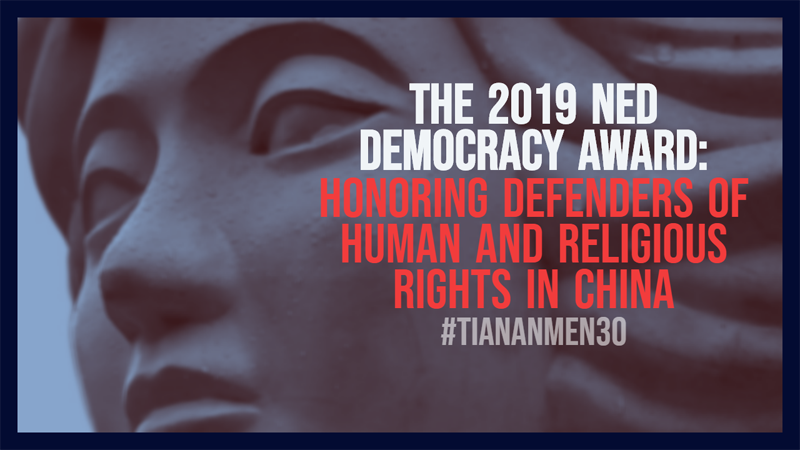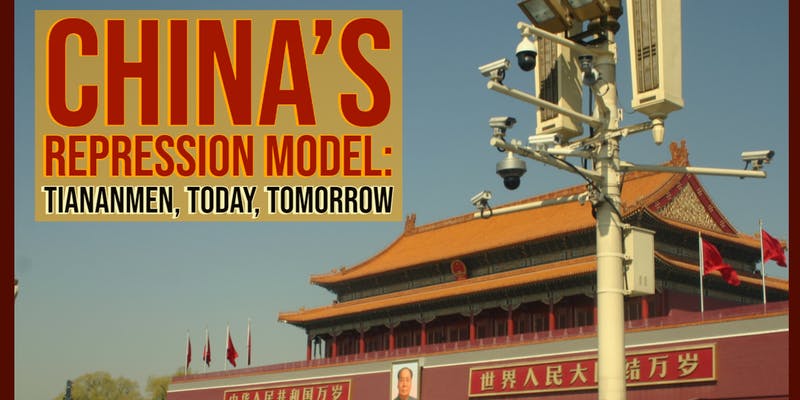
In the realm of global power distribution, as in any area where human agency remains paramount, trends need not become outcomes, notes Andrew A. Michta, dean of the College of International and Security Studies at the George C. Marshall European Center for Security Studies. China’s rise to global preeminence is not a forgone conclusion. It is time we stop contemplating the consequences of our past misguided policy decisions, as though they were now a force of nature, bound to prejudge the outcome. The West must come up with a coordinated response, he writes for The American Interest.
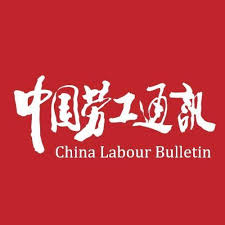 “The United States, Europe, and our democratic allies in Asia have on balance assets that all but ensure a winning hand, given a modicum of coordination and resolve,” Michta contends.
“The United States, Europe, and our democratic allies in Asia have on balance assets that all but ensure a winning hand, given a modicum of coordination and resolve,” Michta contends.
James Kynge, the FT’s Hong Kong-based China editor, covered Tiananmen Square as a young Reuters journalist. in a must-read piece, he surveys exiled democracy activists on the massacre’s legacy, including Han Dongfang, a railway electrician at the time, who now manages the China Labour Bulletin:
One legacy of Tiananmen, as Han sees it, is that it set China on a path towards its current brand of authoritarian capitalism. Following the crackdown, the coercive power of the Communist party grew stronger at the expense of people’s — and particularly workers’ — rights. “Over the past 40 years in China we have had a creed of the market as a magic wand,” he says. “It is ironic that people are waving the communist flag but in fact the party is the biggest believer in capitalism, in the market and in jungle rule in the world.”
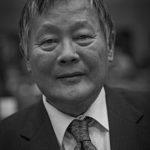
Wikipedia
“Many friends have sacrificed for democracy and freedom. It is not only they that are making sacrifices but their relatives are also paying a huge price for the rights and interests of the Chinese people,” said Wei Jingsheng (right), a co-recipient, with Wang Dan, of the 1998 NED Democracy Award. “This is a pain that most people cannot imagine.”
The Chinese Communist Party will continue to adapt and present a challenging alternative to democracies, argues Hong Kong-based professor Jean-Pierre Cabestan, author of the forthcoming book, China Tomorrow: Democracy or Dictatorship? Influenced by traditional culture and even more so by the regime’s Communist ideology, institutions, and modus operandi, most Chinese citizens are not demanding democracy, but prioritizing security, stability and prosperity over political liberty, he contends. The CCP has installed a “new authoritarian equilibrium which should help with maintaining its dictatorship for a long time,” Cabestan suggests, citing the regime’s adaptability as the basis of its sustainability.
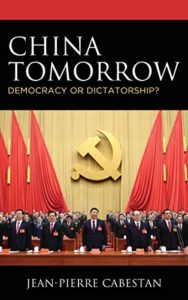 But history will not judge the regime kindly, others suggest.
But history will not judge the regime kindly, others suggest.
“Thirty years later, while the criminal evidence has been covered up by the façade of ‘prosperity’ made up of towering buildings and clustered overpasses, the hard facts of the massacre are etched into history. No one can erase it; no power, however mighty, can alter it; and no words or tongues, however clever, can deny it,” the Tiananmen Mothers wrote in an open letter published by Human Rights in China.
Muslim-majority nations have been almost entirely silent over China’s treatment of ethnic Uighur Muslims — apparently part of calculated policies to avoid angering China, despite widespread denunciations by the West and rights groups, The Washington Post adds (HT: FDD).
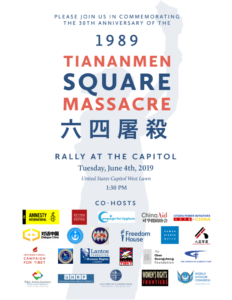 China poses a threat to democratic societies, said Larry Diamond, a senior fellow at Stanford University’s Hoover Institution of Stanford University. Beijing’s projection of sharp power used economic leverage to purchase media outlets and lobby foreign politicians in order to exert Chinese influence and suppress opposing views worldwide, he told a Taiwan conference marking the 30th anniversary of the June 1989 Tiananmen Square massacre, organized by the Hong Kong-based New School for Democracy and the Hong Kong Alliance in Support of Patriotic Democratic Movements of China.
China poses a threat to democratic societies, said Larry Diamond, a senior fellow at Stanford University’s Hoover Institution of Stanford University. Beijing’s projection of sharp power used economic leverage to purchase media outlets and lobby foreign politicians in order to exert Chinese influence and suppress opposing views worldwide, he told a Taiwan conference marking the 30th anniversary of the June 1989 Tiananmen Square massacre, organized by the Hong Kong-based New School for Democracy and the Hong Kong Alliance in Support of Patriotic Democratic Movements of China.
China made “solemn representations” to Germany after it granted refugee status to two Hong Kong activists facing rioting charges in the Chinese-ruled city, demanding it correct its “mistakes”, Reuters reports (HT:FDD).
What threat does a revisionist China pose to the United States and democratically minded states around the world? Where should we look to find out the intentions of the Chinese Communist Party? If left unchecked, will China export its illiberal form of government? These and other questions are explored in this week’s episode of War on The Rocks’ Jaw-Jaw by Peter Mattis, a Research Fellow in China Studies at the Victims of Communism Memorial Foundation, and Brad Carson, a professor at the University of Virginia.
The National Endowment for Democracy will honor the efforts of three outstanding organizations confronting Beijing’s authoritarian tactics on the front lines, empowering Tibetans, Uyghurs, and Chinese Christians with technical, financial, and moral support to defend their rights, preserve their culture, and live their faith amidst the daily assault on their very existence. RSVP
Tue, June 4, 2019. 5:00 PM – 7:00 PM EDT Add to Calendar
Location: United States Capitol, First Street Southeast, HC-5, Washington, DC 20004 View Map
